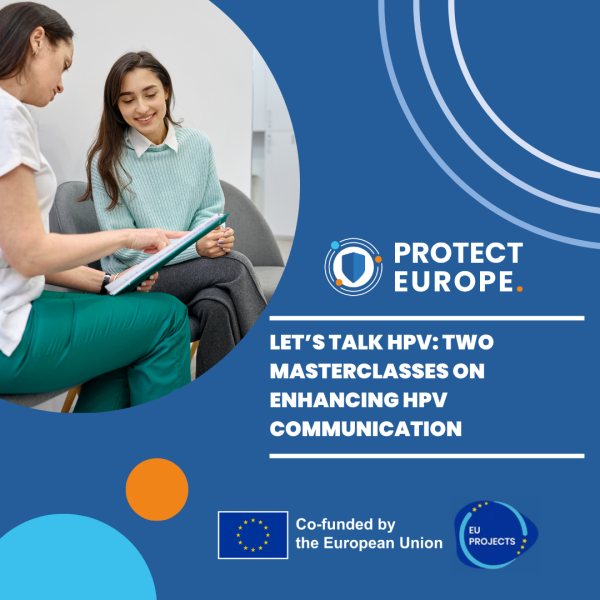Event Details
Watch the recording and learn more on the key speakers here.
Access the follow-up surveys for the participants of masterclass 6 and masterclass 7.
PROTECT-EUROPE is an EU4Health project that champions gender-neutral vaccination programmes in EU member states to protect everyone against cancers caused by the human papillomavirus (HPV) e.g. cervical, anal, penile, vaginal, vulval, and head & neck.
As part of the project, we are delivering a series of ten masterclasses on HPV vaccination focusing on various themes and topics, and all connected to the project's aim of developing more effective public health messaging on the virus and the vaccine.
On 10 October from 10:30 to 12:30 CEST we held our sixth and seventh masterclasses in the series, dedicated to effective communication with parents and young adults on HPV infection and vaccination. Each session approached the topic from distinct, yet equally vital, perspectives.
Masterclass 6 - Let's Talk HPV: How to Enhance Communication Between Parents and Healthcare Professionals (10:30 - 11:30 CEST), focused on educating healthcare professionals about correct communication with parents and carers regarding HPV vaccination. This session explored the most effective strategies for discussing prevention and vaccination, ultimately providing the means for doctors to build more trust with their patients, provide accurate information and address concerns. Participants learned techniques to enhance dialogue, strengthen relationships, and ensure parents and carers feel informed and supported in making decisions about their children’s health.
Masterclass 7 - Let's Talk HPV: Empowering Young People to Shape a Healthier Tomorrow (11:30 – 12:30 CEST), focused on how to effectively communicate with young people about HPV vaccination and sexual health. It provided tools and strategies for parents, caregivers, educators, or healthcare professionals so that they can approach these sensitive topics with clarity and empathy. Participants learned how to foster open, respectful dialogue, and how to empower young people by addressing their worries and providing them with accurate information to make informed decisions.

